According to Boston Consulting Group research, GenAI is a hot topic among marketers, with the vast majority expressing confidence in its potential benefits to their organization. However, marketing teams must be strategic when adopting GenAI. CMOs are the driving force behind GenAI adoption at organizations, which means they have the power to shape the way companies embrace this powerful tool. It can be tempting to overly focus on boosting efficiencies through automation at the expense of innovation. Learn why the most successful campaigns combine both GenAI and predictive AI with human creativity and emotional intelligence.
CMOs are optimistic about GenAI’s potential, but should prepare for brand risks as well.
CMOs see generative AI’s (GenAI) potential, viewing it as a way to trigger growth and boost efficiencies. In fact, over 75 percent of CMOs report feeling both confident and optimistic regarding the future impact this new technology will have at their organization. According to research from Boston Consulting Group’s 2024 survey of more than 200 CMOs across seven countries (conducted in partnership with the Association of National Advertisers (ANA)), 80 percent of CMOs feel that GenAI is “already improving automation, speed, and productivity.”
Many CMOs have already harnessed GenAI’s potential when it comes to low-hanging fruit applications, using GenAI tools for everything from content creation to social media “listening.” However, scaling GenAI at a broad level throughout the organization has risks that you need to prepare for: Focusing too heavily on capturing efficiencies can harm your brand if not done carefully. For example, if AI creates the majority of your content, you risk producing dull, off-brand content...
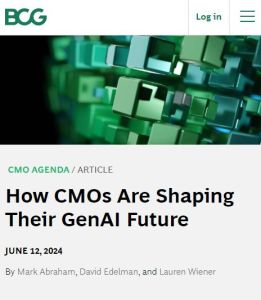









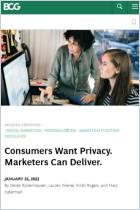
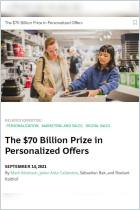
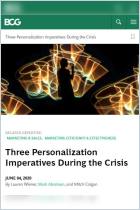
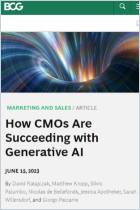
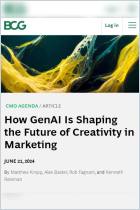
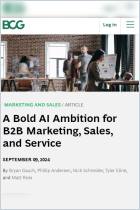
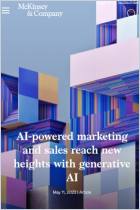

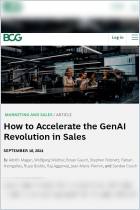







Comment on this summary or Iniciar a Discussão